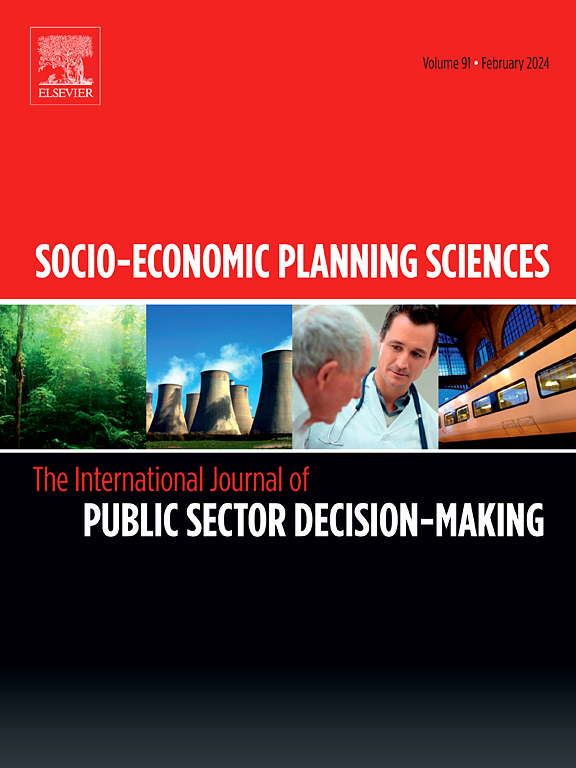Prioritization of old community renewal projects based on stakeholders' preferences – The case of Beijing, China
IF 5.4
2区 经济学
Q1 ECONOMICS
引用次数: 0
Abstract
Old community renewal is an important part of urban regeneration. Prioritization of old community renewal projects (OCRP) is crucial to every strategy for urban regeneration. Existing research focuses on qualitative analysis rather than multi-stakeholder participation or quantitative analysis between equity and efficiency. Diverse stakeholders involved in such subjective judgment often have conflicts due to unclear benefits sharing, which hinders the progress of urban regeneration.
This research aims to make the prioritization more acceptable to diverse stakeholders to ensure that the progress cannot be hindered. By decision support system capable of scenarios simulation, we evaluate the suitability of OCRP. The system is based on the Logic Scoring of Preference (LSP) method, which quantifies abstract stakeholders' preferences through two logical concepts: simultaneity and substitutability. In the case of Beijing, we simulate the prioritization under two types of scenarios. We find that stakeholders' preferences lead to different prioritization. And we discuss the influence of trade-off between equity and efficiency on the prioritization. More equitable prioritization when incorporating more residents' preferences, and more efficient when incorporating more investors' preferences. The system may provide a scientific reference to support decisions regarding old community renewal in metropolitan areas.
基于利益相关者偏好的旧社区更新项目优先排序——以中国北京为例
旧社区更新是城市更新的重要组成部分。旧社区更新项目的优先排序对每一个城市更新策略都至关重要。现有的研究侧重于定性分析,而不是多利益相关者参与或公平与效率之间的定量分析。在这种主观判断中,不同的利益相关者往往因利益分配不明确而产生冲突,阻碍了城市更新的进程。本研究旨在使优先顺序更容易被不同的利益相关者接受,以确保进展不会受到阻碍。通过具有情景模拟能力的决策支持系统,对OCRP的适用性进行了评价。该系统基于逻辑偏好评分(LSP)方法,该方法通过同时性和可替代性两个逻辑概念量化抽象利益相关者的偏好。以北京为例,我们在两种情况下模拟了优先级。我们发现利益相关者的偏好导致了不同的优先级。并讨论了公平与效率权衡对优先级排序的影响。考虑到更多居民的偏好,优先排序更加公平;考虑到更多投资者的偏好,优先排序更加高效。该系统可为大都市地区旧社区更新的支持决策提供科学参考。
本文章由计算机程序翻译,如有差异,请以英文原文为准。
求助全文
约1分钟内获得全文
求助全文
来源期刊

Socio-economic Planning Sciences
OPERATIONS RESEARCH & MANAGEMENT SCIENCE-
CiteScore
9.40
自引率
13.10%
发文量
294
审稿时长
58 days
期刊介绍:
Studies directed toward the more effective utilization of existing resources, e.g. mathematical programming models of health care delivery systems with relevance to more effective program design; systems analysis of fire outbreaks and its relevance to the location of fire stations; statistical analysis of the efficiency of a developing country economy or industry.
Studies relating to the interaction of various segments of society and technology, e.g. the effects of government health policies on the utilization and design of hospital facilities; the relationship between housing density and the demands on public transportation or other service facilities: patterns and implications of urban development and air or water pollution.
Studies devoted to the anticipations of and response to future needs for social, health and other human services, e.g. the relationship between industrial growth and the development of educational resources in affected areas; investigation of future demands for material and child health resources in a developing country; design of effective recycling in an urban setting.
 求助内容:
求助内容: 应助结果提醒方式:
应助结果提醒方式:


